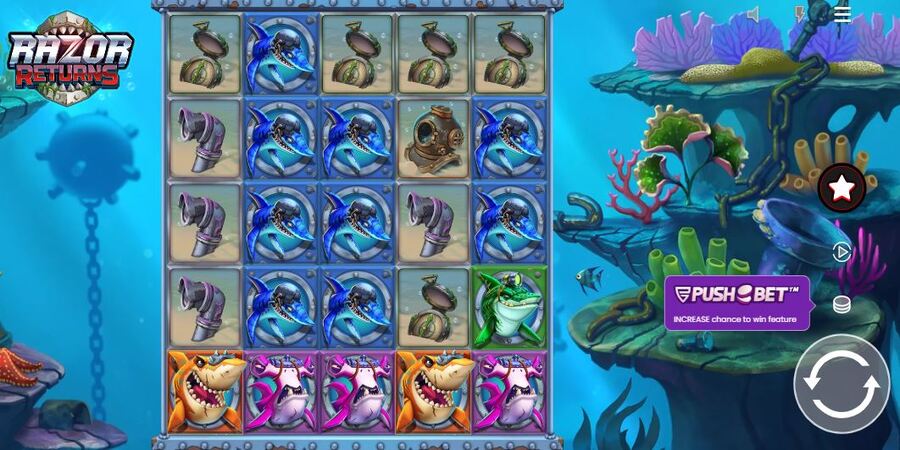Expected reading time 5 mins
Last Updated: April 10, 2024

Written by Jon Bryan
Jon Bryan offers his thoughts on slots and the commentary that often surrounds those who play them.
People who play on slot machines are sometimes viewed with disdain, including by some other punters. Discussing this issue with a few friends, one commented: ‘It’s probably the most difficult form of gambling to defend’. Why is that? Given the amount of coverage that there is about betting on sports, such as football and horse racing, it is perhaps timely to offer some comments on other types of gambling, particularly as government policy and public opinion don’t always differentiate between them.
PRESSING BUTTONS
“I’m just pressing buttons. I don’t pretend there’s any skill.”
This is what a friend once said to me, explaining how he was winning on the slot machines at the casino. We had both gone to play in a poker tournament, and he had been knocked out in the early stages. I managed to get on the final table in the poker and earned a small profit. Meanwhile, he had been playing on the slot machines.
I was impressed with how my friend had managed to turn a relatively small stake into a three-figure profit, and I congratulated him on his winnings. In reply, he said that my skill had got me a win at poker, and that he was ‘just pressing buttons’. Both things were probably true, but there is a difference between how people might respond to different gambling wins. ‘Well played,’ we might say in complimenting a poker player’s skill, whereas a simple ‘nice one’ is typically doled out in recognition of the slot player’s luck. The two reactions illustrate how different types of gambling are viewed.
A NEGATIVE PORTRAYAL
The negative portrayal of slots players is something I have recently written about: the sometimes ‘snobbish attitude’ from others, particularly to those who plays slots online. In some ways, it is a strange attitude, as the picture that many of us have of the lucky gambler is the one who wins their fortune on a slot machine, with just one spin.
But perhaps that image is dying away, especially as much of the current discussion in the UK about gambling originates from the type of slot machine that has been talked about more than any other: Fixed-Odds Betting Terminals, or FOBTs, which you largely find in Bookmakers. The debate about FOBTs led to Parliament changing the law to reduce the maximum stake from £100 to £2, the resignation of a Government Minister, the vilifying of anyone who played FOBTs, and it gave the anti-gambling lobby a momentum which continues to this day.
That FOBTs and other slot machines are games of chance is very well-known. It is not hidden from the punter, or anyone else. But the more I hear that statement – ‘These are games of chance’ – especially when it is said by politicians and public figures, I’m convinced it’s said as a way of not just devaluing those games, but also the individuals playing them. ‘Don’t they know the odds on those things?’, is often the way this is expressed, as if it would be some sort of revelation to the slots player that the house has an advantage.
SO, CAN YOU WIN PLAYING ONLINE CASINO GAMES SUCH AS ROULETTE OR SLOTS?
A cursory glance at any online gambling discussion shows that most responses can be encapsulated by one of two phrases. ‘Yes, in the short term you can’ and ‘No, unless you own the casino’.
An example of one such discussion can be read here. However, there are some interesting answers that hover between the two and some good guidance for anyone who plays online slots and casino games. There is advice on capitalising on any wins, minimising your losses, and comments on why people choose to play them. Fun and the possibility/anticipation of winning are up there as the main reasons.
SO, DOES THE HOUSE ALWAYS WIN?
Although the answer to this question is a rather obvious ‘Yes’, there can be times when an individual ends up with more money than they have wagered, even with games of chance. That, surely, is why people continue to play them – the possibility that sometimes you might win.
On a more recent trip to the casino with another friend, he sat down and played on one of the online roulette wheels, starting to make a small profit. ‘I’m playing the system that my dad used to adopt’, he said to me, ‘but I think it is just a slower way of losing your money’. This reminded me of some work that Chris Snowdon did a couple of years ago, when he examined winning and losing sessions on FOBTs, asking if the house really did win every time.
We all know about the house edge (see NOTE at the end). When it comes to FOBTs, they produce a winning percentage of at least 3% for the Bookmakers. In other words, at most, 97% of everything players put into machines is returned to them – the Fixed-Odds which mean that the house would always win in the long term. But one thing that Snowdon found was that, at certain levels, there were more winning sessions than losing ones. What does this mean? He speculates that ‘players exploited the only advantage they have over a machine: they can walk away when they’re winning’.
“STOP WHEN YOU ARE IN PROFIT”

Snowdon has a good point about players walking away when they are ahead, and it is certainly something that I would advocate, although it is easier said than done. It is a general piece of advice given to and by me on dozens of occasions when it comes to gambling, and ‘stop when you are in profit’ appears as one of the answers on the discussion thread I referred to earlier.
I asked friends of mine why they played on the slots. One of them said:
“The edge slots players have is walking away when you are winning. That’s why casinos hate those guys that walk in, stick a big bet on red and walk straight back out after one winning bet. The casino isn’t able to exploit the long-term mathematical certainty of winning. The key for players is exploiting their only advantage, the short-term variance in probability. When you’re up, walk away, although we all know how hard that is.”
There doesn’t appear to be much that has been written about slots players, and why they continue to be a popular way of gambling for some people. Another friend of mine explained why he enjoyed playing on them:
“I enjoy a flutter and understand you’re paying for the enjoyment of the experience. I know that in all likelihood the house will win, but I can appreciate the journey and entertainment the experience provides, while slowly relieving me of cash.”
Another friend commented:
“When it comes to things like slots, I can’t think of any other method of gambling that enables you to bet one pound, and potentially win a grand. When that happened to me once, I bet £2 and won £1500, and went to Mexico on holiday on the spur of the moment because of that. Such that I have a ‘system’ when I play, it’s more of a target that I set myself: to bet a certain amount (and no more) and stop when/if I manage to get lucky when my bankroll hits that target.”
None of the people I know have any expectations that they can win overall when it comes to playing slots, but they enjoy the possibility that they might get lucky. ‘I’m just pressing buttons’ might be an easy summary of what the slots player is doing, but behind that there is the prospect of getting the win, and the enjoyment of the expectation that it could happen.
THE ENJOYMENT OF GAMBLING
The enjoyment of gambling is an area which seems largely unresearched, which is unlikely to change given the current narrative on gambling. There is plenty of work on the harms of gambling, and various statistics are used to illustrate the problems. If we know that gamblers enjoy the experience of having a bet and taking a chance, perhaps more work need to be done on improving the experience of consumers?
Improving customer satisfaction is an area worthwhile examining in more detail, but ‘Let’s make gambling more enjoyable’ is a slogan I can’t imagine many people wanting to get behind, at least, publicly. Those politicians with responsibility for overseeing gambling could certainly do with putting consumer experience at the heart of what they do when it comes to new regulation and guidance, but I suspect that me winning the lottery is more likely before they start to do that.
[NOTE: You can find information about the ‘house edge’ (or sometimes what is known as the RTP – Return to Player) in lots of places, including here at SlotsHawk.
Jon Bryan is a Gambling Writer and Poker Player. His new pamphlet “Risking It All: The freedom to gamble” is now available to purchase or free to download. You can subscribe (for free) to his Substack:
Follow him on Twitter @JonBryanPoker.







